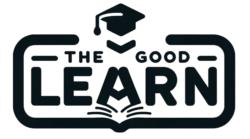Advanced Stroke Life Support (ASLS) courses are essential for healthcare professionals who manage stroke patients. These courses provide critical training that can significantly improve patient outcomes. In Denver and Colorado Springs, ASLS courses are becoming increasingly popular due to their comprehensive curriculum and practical applications. This article explores the benefits of ASLS courses in these two vibrant Colorado cities.
What is ASLS?
ASLS, or Advanced Stroke Life Support, is a specialized training program developed by the American Heart Association in collaboration with the University of Miami’s Gordon Center for Simulation and Innovation in Medical Education. The course is designed to educate healthcare professionals on how to identify, evaluate, and manage patients experiencing a stroke.
Why ASLS Courses are Important
- Enhanced Stroke Management Skills: ASLS courses equip healthcare providers with the skills needed to manage stroke emergencies effectively. This includes recognizing stroke symptoms, performing neurological assessments, and implementing appropriate interventions.
- Improved Patient Outcomes: By learning the latest protocols and treatment strategies, healthcare professionals can significantly improve the outcomes for stroke patients. Early and accurate intervention can reduce the risk of long-term disability and increase the chances of recovery.
- Professional Development: Completing an ASLS course enhances a healthcare professional’s credentials and demonstrates their commitment to providing high-quality care. This can be beneficial for career advancement and professional recognition.
- Compliance with Certification Requirements: Many hospitals and healthcare facilities require staff to be certified in stroke life support. ASLS courses meet these certification requirements, ensuring that healthcare providers are qualified to handle stroke emergencies.
Benefits of ASLS Courses in Denver
Denver, known for its high altitude and vibrant healthcare community, offers numerous opportunities for healthcare professionals to enhance their skills through ASLS courses.
- Access to Leading Medical Institutions: Denver is home to several top-tier medical institutions that offer ASLS training. These institutions provide state-of-the-art facilities and experienced instructors, ensuring high-quality education.
- Networking Opportunities: ASLS courses in Denver attract healthcare professionals from various specialties. This provides an excellent opportunity for networking and exchanging knowledge with peers.
- Convenient Locations: With multiple training centers across the city, healthcare professionals can find ASLS courses at convenient locations, making it easier to fit training into their busy schedules.
- Comprehensive Training Programs: Denver’s ASLS courses cover both prehospital and in-hospital stroke management, providing a well-rounded education that prepares healthcare providers for any situation.
Benefits of ASLS Courses in Colorado Springs
Colorado Springs, with its scenic beauty and growing healthcare sector, also offers numerous benefits for those seeking ASLS certification.
- High-Quality Training Facilities: Colorado Springs boasts several advanced training facilities that offer ASLS courses. These facilities are equipped with the latest technology and provide a conducive learning environment.
- Focus on Community Health: ASLS courses in Colorado Springs often emphasize community health and the importance of timely stroke intervention. This focus helps healthcare providers understand the broader impact of their work on the community.
- Experienced Instructors: Many ASLS courses in Colorado Springs are taught by experienced healthcare professionals who bring real-world insights into the classroom. This practical knowledge is invaluable for students.
- Flexible Scheduling: Recognizing the busy schedules of healthcare professionals, many ASLS courses in Colorado Springs offer flexible scheduling options, including weekend and evening classes.
Key Components of ASLS Courses
- Prehospital Stroke Management: This component focuses on the principles of prehospital stroke care, including recognizing stroke symptoms, performing initial assessments, and determining when to call a stroke alert.
- In-Hospital Stroke Management: This part of the course covers the organized approach to treating stroke patients in a hospital setting. It includes etiologic evaluation, secondary stroke prevention, and management of acute ischemic stroke, intracerebral hemorrhage, and subarachnoid hemorrhage.
- Post-Acute Care Management: ASLS courses also address post-acute care, including supportive medical care, rehabilitation, and discharge planning for stroke patients.
- Blended Learning Format: Many ASLS courses are now offered in a blended learning format, combining online, self-directed learning with in-person skills testing. This format provides flexibility and ensures that students can learn at their own pace.
How to Choose the Right ASLS Course
When selecting an ASLS course in Denver or Colorado Springs, consider the following factors:
- Accreditation: Ensure that the course is accredited by a recognized organization, such as the American Heart Association.
- Instructor Qualifications: Look for courses taught by experienced and certified instructors who have practical experience in stroke management.
- Course Format: Choose a course format that fits your learning style and schedule. Blended learning formats offer flexibility, while traditional classroom settings provide hands-on experience.
- Reviews and Testimonials: Check reviews and testimonials from previous students to gauge the quality of the course and the effectiveness of the training.
Conclusion
ASLS courses in Denver and Colorado Springs offer numerous benefits for healthcare professionals. These courses enhance stroke management skills, improve patient outcomes, and provide valuable professional development opportunities. With high-quality training facilities, experienced instructors, and flexible scheduling options, healthcare providers in these cities can easily access the education they need to excel in their careers.
Whether you are a nurse, paramedic, physician, or any other healthcare professional, completing an ASLS course can significantly enhance your ability to manage stroke emergencies and provide high-quality care to your patients. By choosing the right course and committing to continuous learning, you can make a meaningful impact on the lives of stroke patients and contribute to the overall health of your community.

